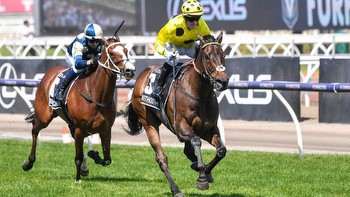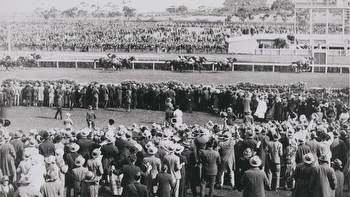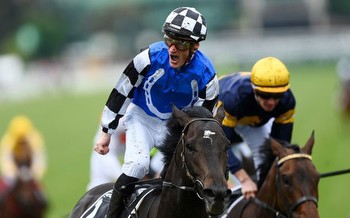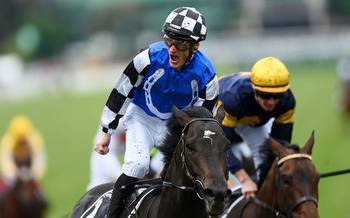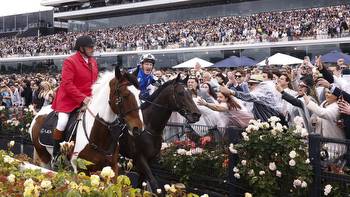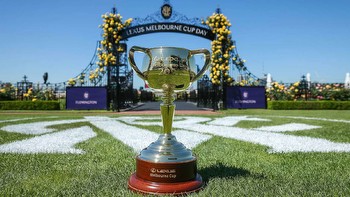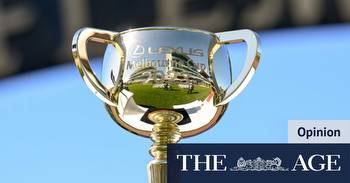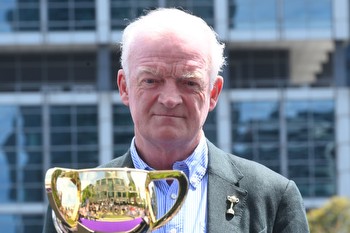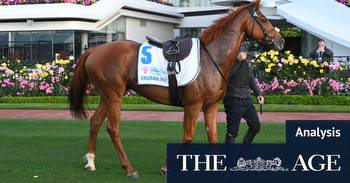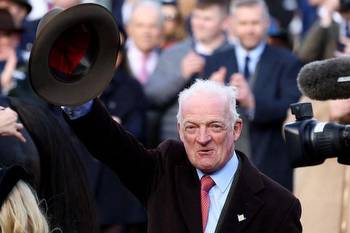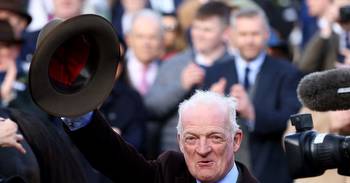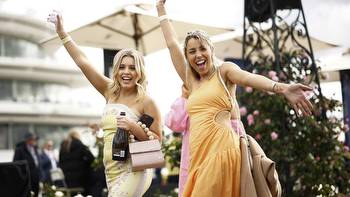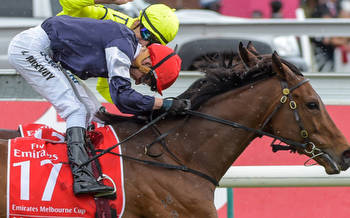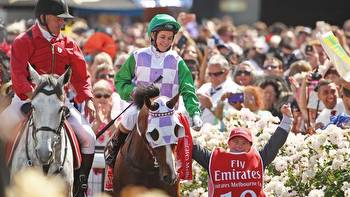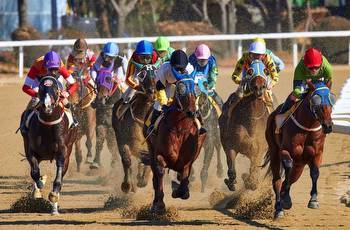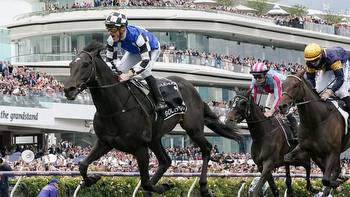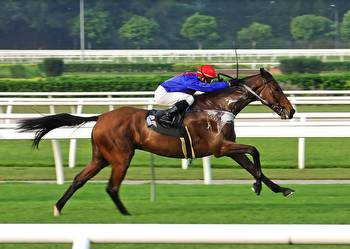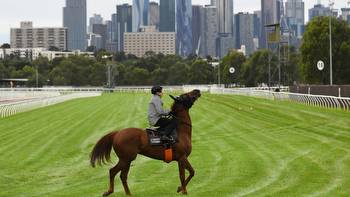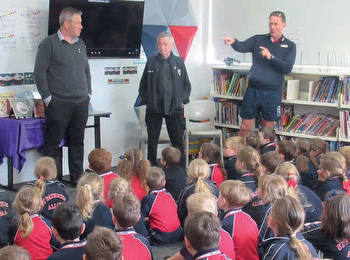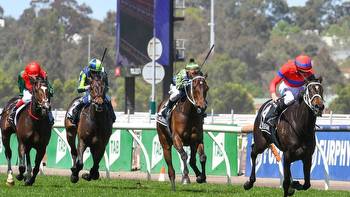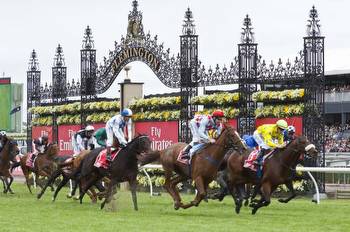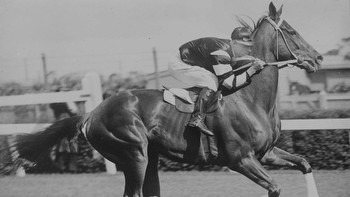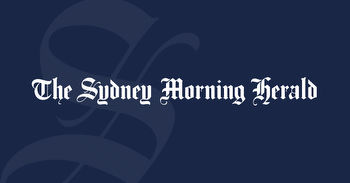SEVEN OF THE MOST IMPRESSIVE HORSES IN MELBOURNE CUP HISTORY
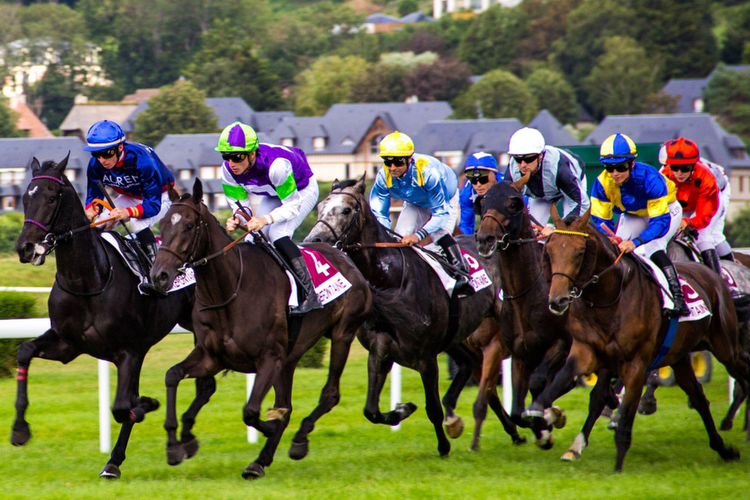
By HRI Foreign Staff — More than 100 elite stayers have secured fame and fortune by winning the Melbourne Cup since it was inaugurated in 1861.
It is an extremely prestigious race with a very large prize purse, which always ensures a star-studded field at Flemington each year. As such, only the very best runners go on to salute in the race that stops a nation.
Any horse that wins the Melbourne Cup deserves great acclaim, but a select handful of superstars stand out. These are the seven most famous Melbourne Cup winners of all time:
Archer
The local bookmakers installed Victorian champion Mormon as the clear favourite to win the very first Melbourne Cup back in 1861. Nobody paid a great deal of attention to Archer, a brooding outsider who had travelled to Melbourne from Sydney on a steamboat to compete in the race. However, he ended up reeling in Mormon on the home straight and surging clear to win the race by an impressive six lengths.
Owner Etienne de Mestre was awarded 710 gold sovereigns and a hand-beaten watch. The following day, Archer won the Melbourne Town Plate over 2 miles, showing no signs of fatigue from his Melbourne Cup exploits. He also beat Mormon to the Australian Plate and then won the AJC Queen’s Plate at Randwick.
In 1862, Archer returned to Flemington and won a second consecutive Melbourne Cup. Once again, Mormon finished second, but he was eight lengths behind. That was the record winning margin until Rain Lover finally broke it in 1969. Archer would probably have won a third Melbourne Cup in 1863, but he was refused permission to enter the race after his telegraphed acceptance did not arrive in time.
Phar Lap
There have been countless talented Melbourne Cup horses over the years, but Phar Lap was the best of the bunch. In 1930, he blazed a trail of destruction across the Spring Racing Carnival, dispatching his rivals with consummate ease. As such, he became the only odds-on favourite in Melbourne Cup history.
Gangsters tried to shoot Phar Lap in a bid to stop him from winning the race, but they missed, and he cruised to victory. He won 14 consecutive races that year, and 32 of 35 races throughout his career. Phar Lap was also second in two races and eighth in the 1931 Melbourne Cup, but he was assigned an outrageous weight of 10 st 10 lbs (68 kg). Nowadays, the top weight is typically around the 58 kg mark. Phar Lap won his final race, the Agua Caliente Handicap in Mexico, in record time, and then died in mysterious circumstances in 1932.
Peter Pan
Peter Pan became the first two-time Melbourne Cup winner since Archer when he won the race that stops a nation in 1932 and 1934. He nearly crashed out of the 1932 races, as he clipped the heels of another horse and fell to his knees. However, stablemate Denis Boy – who was running behind him – bumped Peter Pan back up to his feet. He was well behind the leaders, but he produced a phenomenal burst of pace to race past the pack and win by a neck.
He was unable to defend his crown the following year, as he was battling a near-fatal virus, which had swept through Sydney’s racing stables. However, Peter Pan went back to Flemington in 1934 and defied a heavy weight, a tough barrier draw and heavy going to win a second Melbourne Cup triumph.
Rain Lover
Rain Lover became the first stayer to win consecutive Melbourne Cups since Archer when he won the race in 1968 and 1969. Trainer Mick Robins, a former coal miner from Broken Hill in NSW, only obtained his licence three months before starting work with Rain Lover. However, he was clearly a fast learner, as Rain Lover won the 1968 Melbourne Cup by a record margin of eight lengths.
The following year, the Bart Cummings-trained Big Philou was the red-hot favourite, but he was withdrawn 39 minutes prior to the race after falling victim to a doping scandal. Rain Lover ended up winning the race by a neck from Allsop. Cummings had to wait five years for his next Melbourne Cup win, as Think Big scored back-to-back triumphs in 1974 and 1975, joining Archer and Rain Lover in the history books.
Kingston Rule
Kingston Rule is famous for winning the 1990 Melbourne Cup in a record time of 3:16.30. A few horses have come close in the ensuing decades, most notably 2002 winner Media Puzzle – who finished in 3:16.97 – but none have managed to break Kingston Rule’s record.
It was a phenomenal victory, but it is perhaps unsurprising. After all, Kingston Rule may well be the best-bred Melbourne Cup winner of all time. His sire was the famous US Triple Crown winner Secretariat – winner of the Kentucky Derby, Preakness Stakes and Belmont Stakes in 1973 and considered by some to be the greatest racehorse of all time – and his dam was Rose of Kingston, the 1982 Australian Horse of the Year.
Makybe Diva
Makybe Diva became the most successful horse in Melbourne Cup history by winning the race in 2003, 2004 and 2005. Archer, Peter Pan, Rain Lover and Think Big were all dual winners, but no horse before or since ever managed to win three Melbourne Cups. Her unusual name was chosen by owner Tony Santic, a fisherman in South Australia, who took the first two letters of the names of five employees – Maureen, Kylie, Belinda, Diane and Vanessa.
She ran near the back of the field in 2003, but jockey Glen Boss picked up the pace down the home straight, reeled in all her rivals and steered her to victory by one-and-a-half lengths. The following year, Makybe Diva began the race as the $3.60 favourite and – in the driving rain – she beat a series of elite rivals to secure her second triumph. Many said she was over the hill in 2005, and they wrote her off after she was assigned 58 kg, but she ended up defying the odds to win it again.
Prince of Penzance
Prince of Penzance is famous for winning the 2015 Melbourne Cup at odds of $101. He was not the first 100/1 roughie to salute in the race that stops a nation – The Pearl (1871), Wotan (1936) and Old Rowley (1940) – had previously done so. However, most commentators felt that it would never happen in the modern era.
Yet Prince of Penzance, who had never previously secured a G1 victory, took the lead in the final 100 metres and ended up finishing half a length clear of runner-up Max Dynamite. His triumph was also noteworthy as rider Michelle Payne became the first female jockey to win the Melbourne Cup in the race’s long history.

